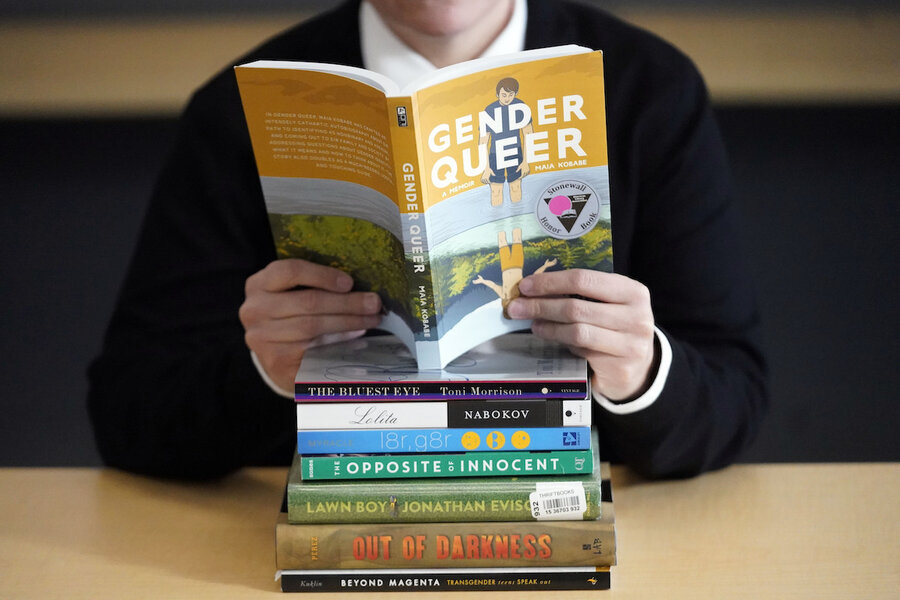From Toni Morrison to Ta-Nehisi Coates, book bannings surge
Loading...
| New York
Book bans and attempted bans continue to hit record highs, according to the American Library Association. And the efforts now extend as much to public libraries as school-based libraries.
Through the first eight months of 2023, the ALA tracked 695 challenges to library materials and services, compared to 681 during the same time period last year, and a 20% jump in the number of “unique titles” involved to 1,915. School libraries had long been the predominant target, but in 2023 reports have been near-equally divided between schools and libraries open to the general public, the ALA announced Wednesday.
“The irony is that you had some censors who said that those who didn’t want books pulled from schools could just go to the public libraries,”’ says Deborah Caldwell-Stone, who directs the association’s Office for Intellectual Freedom.
The ALA defines a challenge as a “formal, written complaint filed with a library or school requesting that materials be removed because of content or appropriateness.”
In 2019, the last pre-pandemic year, the association recorded just 377 challenges, involving 566 titles. The numbers fell in 2020, when many libraries were closed, but have since risen to the most in the association’s 20-plus year history of compiling data. Because the totals are based on media accounts and reports submitted by librarians, the ALA regards its numbers as snapshots, with many incidents left unrecorded.
Continuing a trend over the past two years, the challenges are increasingly directed against multiple titles. In 2023, complaints about 100 or more works were recorded by the ALA in 11 states, compared to six last year and none in 2021. The most sweeping challenges often originate with such conservative organizations as Moms for Liberty, which has organized banning efforts nationwide and called for more parental control over books available to children.
“There used to be a roughly one-to-one ratio, where a parent would complain about an individual book, like in the days when many were objecting to Harry Potter,” Ms. Caldwell-Stone says. “Now you have people turning up at meetings and asking that 100 titles be removed.”
The ALA released its numbers in advance of its annual banned books week, Oct. 1-7, when libraries highlight challenged works. Earlier this year, the association issued its annual top 10 list of the books most objected to in 2022, many of them featuring racial and/or LGBTQ themes. Maia Kobabe’s “Gender Queer” topped the list, followed by George Johnson’s “All Boys Aren’t Blue,” and Nobel laureate Toni Morrison’s “The Bluest Eye.”
Attacks against teachers and librarians have been ongoing in 2023.
At Chapin High School in South Carolina, some students alleged that a teacher made them feel “ashamed to be Caucasian” for assigning Ta-Nehisi Coates’ “Between the World and Me,” an open letter to his son about police violence against Black people that won the National Book Award in 2015. The school removed the book from the syllabus.
In Fort Royal, Virginia, the county board of supervisors is planning to drastically cut funding for the Samuels Public Library in response to conservative complaints about books with gay, lesbian, and transgender characters. Iowa Gov. Kim Reynolds signed into law a bill that calls for books depicting sex acts to be removed from school libraries.
Some attacks have affected the library association itself. The ALA’s opposition to bannings has led some communities to withdraw their membership, including Campbell County in Wyoming and a local library in Midland, Texas. Missouri officials announced the state would be leaving the ALA at a time when recent laws limited access for young people to books considered inappropriate for their age.
“I think this trend is going to continue,” Ms. Caldwell-Stone says, “at least for as long these groups want to go after whole categories of books.”
This story was reported by The Associated Press.





